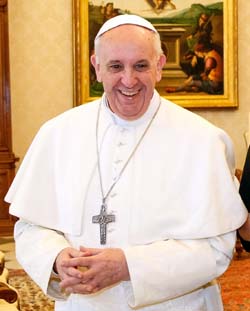The following is a letter I sent to my bishop in response to the invitation to reflect on the “gift of marriage.”
Right Reverend John Arnold
Bishop of Salford
c/o Cathedral Centre
3 Ford Street
Salford
M3 6DP
Dear Bishop John,
I would like to respond to the invitation from the Bishops of England and Wales to reflect on “the gift of marriage and family life”.
I apologise for writing anonymously, which would normally be abhorrent to me: this is necessary to preserve family confidentiality. My parents are both dead but all my siblings are alive; several still live within the Salford Diocese where we grew up.
I was brought up in a large family, perceived to be “a Good Catholic family.” I was often told, as a child, how marvellous my parents were. The truth, inside the family home was very different from the public image. Essentially, my parents were very unhappy and unsuited to each other. Before my own marriage, my mother confided that “there was nothing in marriage for women”. She told me with great vehemence how much she hated my father. When I asked her why she had married him, she said “He was the first Catholic to ask me.”
I later learned that she had been in love with a non-Catholic boy but that both families had been strongly opposed to a “mixed marriage” and the couple had not been permitted to marry. (This was in the early 1940’s). My mother stayed with my father because it was her “duty” to do so and even separation was then unthinkable for a Catholic.
As children we were well fed and cared for materially and physically and both Mum and Dad worked extremely hard. We were given good opportunities educationally. However, emotionally we were significantly neglected and, some might say, abused. The home was very strict and physical threats and punishment ensured “good behaviour”. We were brought up very strictly in the Catholic faith and taught never to question our priests, teachers or our parents but to be obedient and do our duty at all times.
I learned to fear my parents and to fear God. “Love” was a word which was not in my vocabulary and I can remember one night crying myself to sleep when my friend’s mother kissed me goodnight, just longing to be part of a loving family.
Out of our large family of children 4 have had significant problems with depressive illnesses, two quite seriously. (I attempted suicide in my teenage years). 3 of my siblings are divorced and two more are in unhappy marriages. Yet, in our Parish, my parents were considered to be models of good parenting. It is true to say they were faithful to their contract and did their duty but without demonstrating love. St Paul’s letter to the Corinthians comes strongly to mind here.
I believe it is important for our Bishops to know that marriage is not always a “gift” and that Church teaching on marriage has led to untold misery for many couples and has had lifelong, detrimental impact on the mental, physical and spiritual health of their children.
In the consultation invitation Pope Francis is quoted as saying: “True joy comes from a profound harmony between persons….” I only wish we had witnessed a little joy in our home and also some in our Church. I recently attended a funeral Mass at the Church in which I was brought up and was distressed at the impersonal and wholly artificial manner in which the Requiem Mass was “performed” with artificial voice and gestures (I cannot bring myself to say “celebrated” as there was nothing reminiscent of celebration there at all.) It felt as if the whole thing was centred on the priest (in his new but old fashioned soutane and very lacy surplice) rather than centred on Jesus. There was virtually nothing about the individual who had died or his family (although they are regular church goers.) I left feeling very saddened and quite angry that there seemed to be even less joy there than there was in the 1950’s when I was a girl at that same church.
I pray that the Holy Spirit will guide this consultation and bless our Pope and all the Clergy with the courage to bring real “Good News” to all poor souls who have been marginalised by a church which has emphasised perfection rather than progress and judgement and condemnation rather than forgiveness and mercy and that the liturgy will one day soon speak to the “Anawin” who do not have higher degrees in philosophy, theology, scriptural history and the like. (Sorry, that is a bit off my main point, but as this was a Church in your Diocese, I wanted you to know about my feelings on this.
Once again, I am sorry to write anonymously but I am sure you will understand why.{jcomments on}
